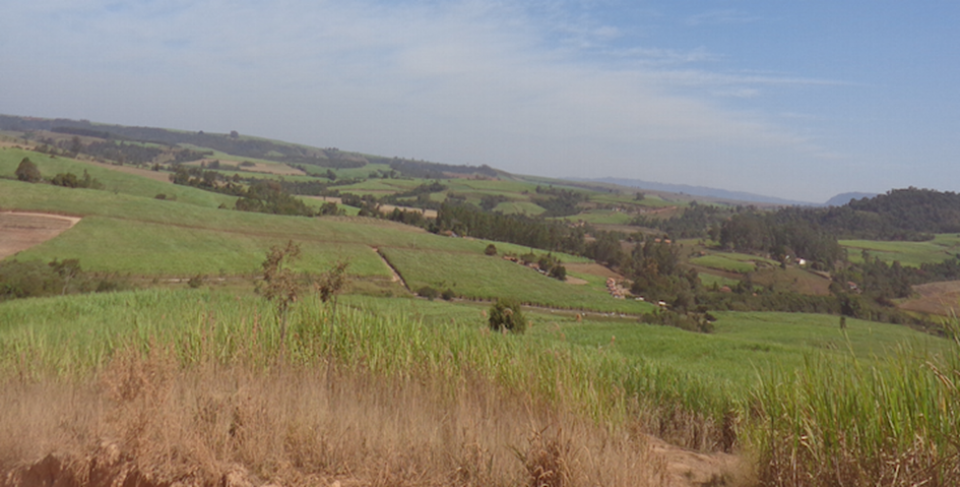
The study area is located in the region of Rio Claro municipality, representing the sugarcane belt in Sao Paulo State, Southeast Brazil. It comprises 14 municipalities with approximately 880,000 inhabitants, covering an area of 5,256 km2 and lying around 180 km from the metropolis of Sao Paulo. Sugarcane production (157,176 hectares), extensive grazing (70,827 hectares) and orange plantations (35,608 hectares) dominate the regional agriculture, where sugarcane crops occupy 47% of the landscape cover while pastures and forests occupy 22% each. In this landscape context the municipality of Rio Claro presents a deficit of natural vegetation of about 3,500 ha that need to be restored according to The Forest Code (Brazilian Federal Law).
Investigating the feasibility of operationalising a "Payment for Ecosystem Services" (PES) scheme in the sugarcane belt from a political, financial and technical perspective.
If the implementation and operationalisation of a Payment for Ecosystem Services scheme in the sugarcane belt is feasible, in the future landowners in the rural area could benefit from a compensation - monetary or of another type - for providing conservation and/or restoration of natural resources and ecosystem services.
Results are transferable to other countries with similar ongoing economic development, large scale agricultural commodities and accelerated rates of loss of important ecosystems services, such as water and pollination. The institutional and governance arrangements among land users, policy makers and scientists can be also understood as possible arrangements that might promote and or undermine operationalization of the natural capital in an accelerated changing world.
Rio Claro municipality is a pioneer case study where data and willingness of all stakeholders involved in a Payment for Ecosystem Services scheme are assessed. This gives a good opportunity to implement a successful public policy. The semi-structured interviews strengthen the trust among stakeholders, which is a very important factor in a Payment for Ecosystem Services scheme.~
